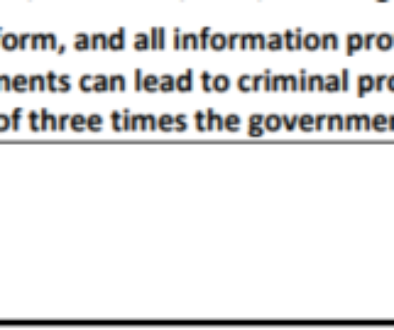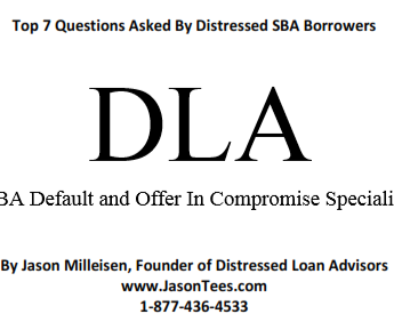There is a lot of confusion out there about what constitutes a legitimate assets transfer, and what banks and the SBA consider to be fraudulent assets transfers.
In general, a legit transfer involved the sale of your business or business assets to an unaffiliated third-party buyer. If the business assets are pledged as collateral for your loan, you MUST get your lenders permission to sell the assets. The idea is that both parties involved in the transaction are negotiating in their own best interest.
Here is an example of what can be considered a legit transaction:
You own a restaurant that was financed with an SBA loan (which is secured with your business assets), and after years of struggles, you decide to sell it because you can no longer afford your loan payment. You reach out to a local competitor to see if he has an interest in buying your business. He comes over to examine the equipment, and says he will buy all the business assets – your coolers, stove, chairs, tables, utensils, walk in coolers and so on. After some negotiating, you settle on a price of $25,000 for everything. Your competitor is going to run the business, and you will not being leasing or buying back the business at any point in the future. You draw up a contract of sale and present the transaction to the bank for approval. The bank agrees to release their lien on the assets upon receipt of the proceeds from the transaction.
Now, let’s contrast the above example of what I’d consider to be fraudulent transactions:
Example #1 of a Fraudulent Transaction (I call this intentional fraud):
You own a restaurant, and after years of struggles, you come to the conclusion that you simply can’t afford to run the business with the current amount of debt that you owe. You’ve heard about the SBA offer in compromise, and that for your type of loan, the bank and the SBA require the borrower to cease operations before they will consider a reduction in principal. Once the business ceases operations, you learn that the bank and the SBA will consider settlement offers in exchange for the release of your personal guarantee. Thinking you found a loophole, you decided to form a new corporation who you will sell your business to. Since it’s obvious that the bank won’t let you sell your business to a corporation owned by you, the new corporation is owned by a friend or a business associate. You draw up a contract of sale, and present it to the bank, conveniently forgetting to omit the fact that the “buyer” is a friend / business associate. This kind of approach is clearly fraudulent. The sole purpose of this transaction is to create the appearance of a sale in order to induce the bank into settling your personal guarantee, and once that happens, you intend to buy or “lease” the business back from the “buyer”. If the bank were aware of all the details, it’s highly likely that they would not approve the sale.
Example #2 of a Fraudulent Transaction (I call this unintentional fraud):
You own a restaurant that was financed with an SBA loan (which is secured with your business assets), and after years of struggles, you decide to sell it because you can no longer afford your loan payment. You reach out to a local competitor to see if he has an interest in buying your business. He comes over to examine the equipment, and says he will buy all the business assets – your coolers, stove, chairs, tables, utensils, walk in coolers and so on. After some negotiating, you settle on a price of $25,000 for everything. Your competitor is going to run the business, and you will not being leasing or buying back the business at any point in the future. You draw up a contract of sale and close the deal without getting bank approval. You take the proceeds from the sale, and pay down some credit card debt. While most people who do this don’t realize that they are doing anything wrong, the SBA does require lenders to refer these types of occurrences to the SBA Inspector General, who investigates fraud within the SBA.
In summary, the rule of thumb is simple: When in doubt, ASK YOUR BANKER IF YOUR TRANSCATION IS ACCEPTABLE TO THE BANK, INCLUDE ALL DETAILS , AND GET THEIR ANSWER IN WRITING! If you are not fully disclosing all the details of the transaction, there is probably something wrong.
Distressed Loan Advisors (http://www.JasonTees.com) offers expert advice about dealing with SBA Loan Default and Forgiveness, and can be reached at . or..


